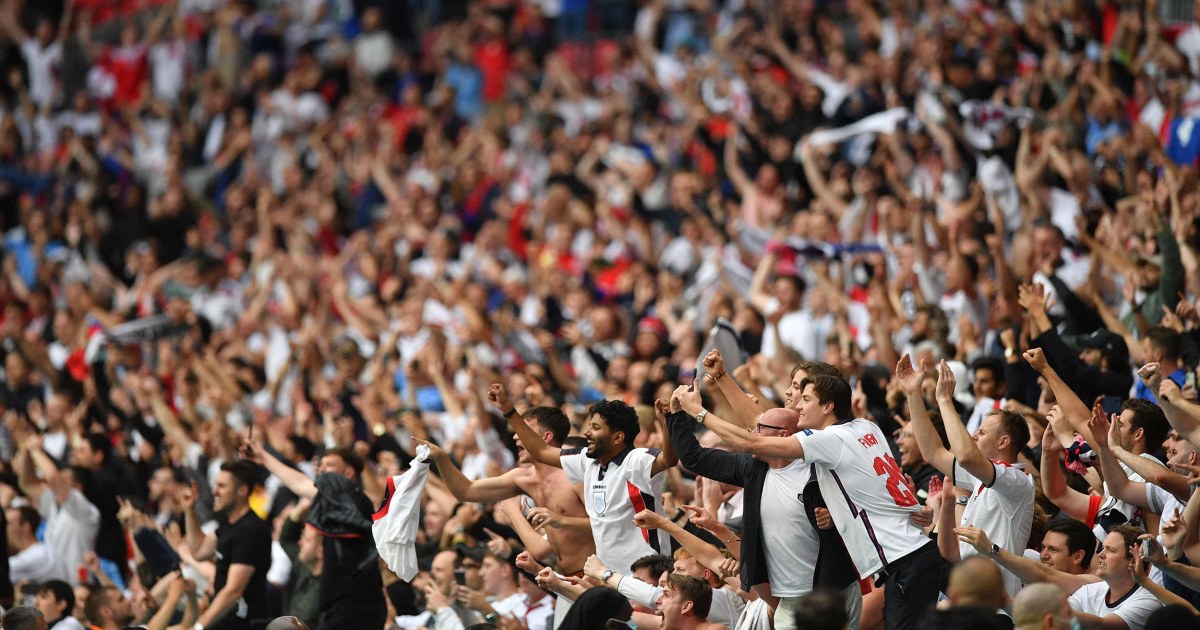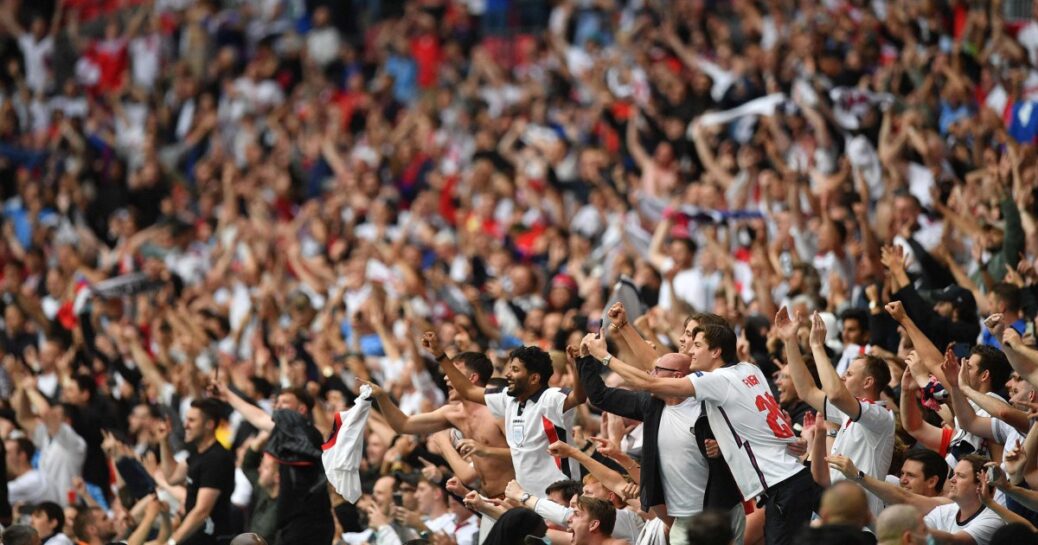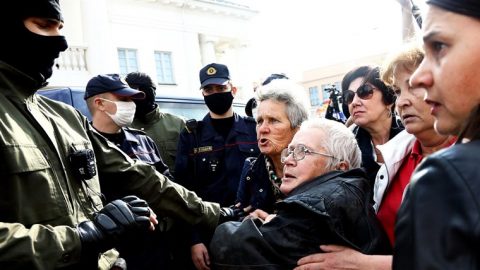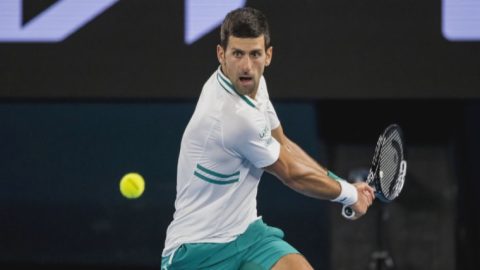
LONDON — The scenes before the Euro 2020 soccer match between England and Scotland did not look like something out of a pandemic.
Tens of thousands of fans, many of them maskless, descended on London for the June 18 game, filling airplanes with rowdy songs, and turning the city’s Leicester Square into something resembling a music festival.
Many left London with more than just hangovers. This week, Public Health Scotland announced that almost 1,300 have since tested positive for Covid-19.
It wasn’t an isolated incident.
On Thursday, the World Health Organization warned that Euro 2020 — a pan-continental, quadrennial soccer tournament whose quarter-finals are being played Friday — is driving a rise in coronavirus cases across Europe.
Western governments have been relying on mass vaccine rollouts in the hope that this will allow them to once again host the type of mass spectator events that were deemed too risky last year.
But as cases rise again in parts of Europe, likely fueled by the delta variant that is far more transmissible and believed to be slightly better at evading some vaccines, these relaxed measures are coming under scrutiny. Some experts are calling for a more cautious approach until a greater percentage of people have been vaccinated and cases begin to fall.
Vaccines appear to be reducing hospitalizations and deaths in places such as the United Kingdom, where the delta variant, first identified in India, is rife, but it’s unclear by how much.
“We need to look much beyond just the stadiums themselves,” the WHO’s senior emergency officer, Catherine Smallwood, told reporters Thursday. “We need to look at how people get there, are they traveling in large crowded convoys of buses? And when they leave the stadiums, are they going into crowded bars and pubs to watch the matches?”
She added, “It is these small continuous events that are driving the spread of the virus.”
Others have been even more scathing.
Euro 2020 is one of several events this summer allowing tens of thousands of spectators into venues. Others include the ongoing Wimbledon tennis tournament and England’s Silverstone Formula One auto race July 18.
Download the NBC News app for full coverage of the coronavirus outbreak
German Interior Minister Horst Seehofer described UEFA, soccer’s European governing body that oversees Euro 2020, as “utterly irresponsible” for allowing mass crowds. Cases have fallen to low levels in Germany, and its Euro 2020 games have played out at a stadium 20 percent full in Munich.
“I cannot explain why UEFA is not being sensible,” he told a news conference this week. “I suspect it is due to commercialism.”
The U.K. government’s Department of Culture Media and sport referred NBC News to UEFA when asked to comment about the criticism. In an emailed statement, it pointed out the “strict entry requirements” for all fans attending games in the U.K., with all attendees needing to show proof of vaccination or a negative test result.
UEFA says that it’s up to host countries how many fans they allow. This is based on factors “including the local vaccination rollout, their plans for reopening the economy and the expected slow-down of the virus due to warmer temperatures,” its website says.
Euro 2020 medical adviser Dr. Daniel Koch said in an emailed statement that “gatherings could ultimately lead to some local increase in the number of cases” but said this would also be the case for many other “situations that are now allowed as part of the easing” of pandemic restrictions.
He said “intensive vaccination campaigns” would “help ensure that no new big wave will start in Europe and put pressure on the respective health systems, as was the case during the previous infection waves.”
It’s true that most of the Euro 2020-related infections have been among men between the ages of 20 and 40, who are less likely to become ill than older people. But experts fear that even with vaccinations, a wave of infections will ultimately lead to some increase in serious illnesses, deaths, and so-called long-haulers who suffer symptoms for months.
This criticism comes weeks before the July 23 opening ceremony of the Tokyo Olympic Games. Responding to months of criticism and opposition to the event, organizers are deploying strict rules over where athletes and other guests can go and what they can do. International fans are banned outright.
Still, Japan’s government advisers say they predict that infections will likely rise during the games.
Measures this strict are rarely, if at all, deployed at Euro 2020, which unlike previous tournaments is not being hosted in one country but in 11 cities across the continent.
In the Russian city of St. Petersburg, 30,500 fans — or 50 percent of the stadium — are allowed entry with just a temperature check, according to UEFA’s website. This would miss asymptomatic or early cases of the virus. Meanwhile, deaths in Russia are currently rising to their highest levels of the pandemic, and only around 12 percent of people there are fully vaccinated.
Finland has contained Covid-19 relatively well so far. But it suffered a “spike” of almost 400 Covid-19 cases “due to football fans returning from Russia,” its health ministry said in a statement Thursday.
Over the next 10 days, tens of thousands of fans will attend the quarterfinals, semifinals and finals of Euro 2020, hosted in the Azerbaijan capital of Baku, St. Petersburg, Rome, Munich and London.
Switzerland is among those left in the competition, playing Spain in St. Petersburg on Friday.
“Things are exploding with the delta variant,” Swiss Health Minister Alain Berset told a press conference this week, according to a translation by Reuters. “Without being vaccinated, I wouldn’t go — I wouldn’t. And if you’re vaccinated, you can go. But it’s associated with multiple risks. You have to watch out.”










Recent Comments